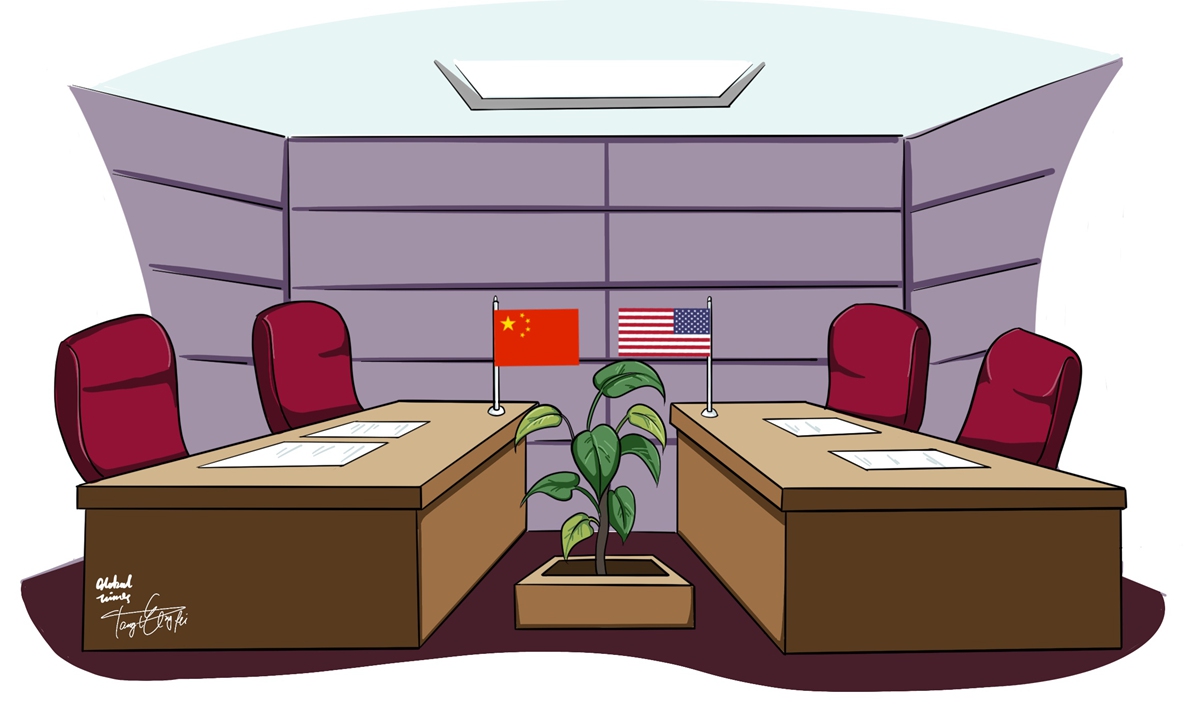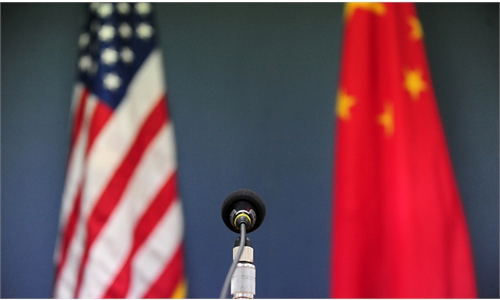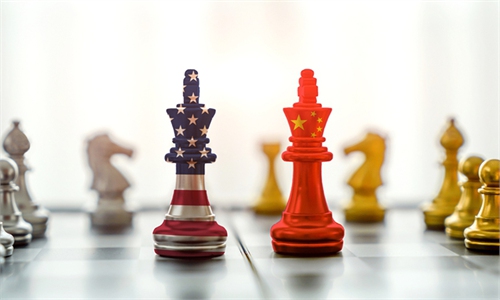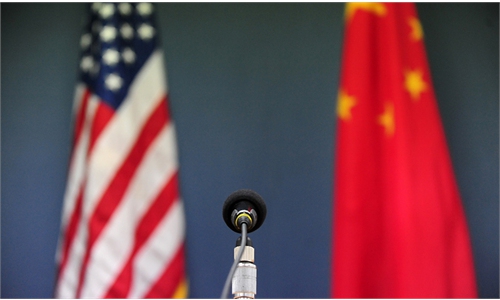COMMENTS / EXPERT ASSESSMENT
US should make overdue correction to Trump’s China tariffs

Illustration:Tang Tengfei/GT
Chinese and US senior trade officials on Thursday held their first phone call during the Biden administration. Both sides believe that the development of bilateral trade is very important and agreed to maintain communication, according to a statement from the Chinese Commerce Ministry.
The restart of the trade talks between the world's two largest economies amid lingering disputes over a wide range of issues could become a positive turning point for the soured China-US trade and economic relationship. It is hoped that the US side can further demonstrate sincerity and goodwill in restoring bilateral trade, first and foremost, to make an overdue correction to the hundreds of billions of arbitrary tariffs which former US President Donald Trump imposed on Chinese products.
Wantonly wielding the tariff stick, Trump waged a protracted and escalating trade war against China since 2018. For more than two years, the reckless trade war has failed to meet almost all of its goals - neither narrowing down the US trade deficit with China nor driving manufacturing industry back to the US.
Instead, these unilateral tariffs have caused severe impact on the China-US trade and the US economy. The hundreds of billions of dollars tariffs imposed on Chinese products have greatly increased the burden on American consumers and the cost of American businesses, which has been further exacerbated amid the COVID-19 pandemic. Even for the sake of bring the US' struggling economy out of the pandemic impacts, it is urgent and necessary for the US to reduce or remove the toxic tariffs.
Given China's dominant status in global manufacturing, the irreplaceable role of Chinese products and supply chains for US consumers and businesses have been more and more proved since the trade war. While complaining about the tariff hikes, many US businesses found it is barely possible to move production out of China or find alternative sources. The tariffs led to an income loss for US consumers of about $16.8 billion in 2018, Bloomberg reported, citing a report released by the US National Bureau of Economic Research in May 2019.
The significance of Chinese market is also increasingly highlighted as COVID-19 takes toll on the US economy. As China has shown great sincerity in fulfilling the phase one trade deal with the US, the US Department of Agriculture said in its 2020 accomplishments that the China-US phase one trade deal led to a record pace of Chinese purchases in many sectors, boosting agricultural commodity prices.
When countless evidence proves that Trump's unilateral tariff legacy needs to be removed as soon as possible, why has Biden not taken any action? This is because how to deal with the issue poses a major test for him amid a rising anti-China sentiment in US politics. Shortly after Biden took office, his team has started review on the impact of the trade war. To date, Biden signals that he will neither fully stick with Trump's radical approach nor remove Trump's tariffs at once. It seems that Biden doesn't want to surrender the weapon of tariffs so quickly, so he can still use it as a tool to coerce and pressure China.
This week, data from US think tank Peterson Institute for International Economics shows that Chinese purchases of US goods for this year through April are 73 percent of the set goal of the phase one trade deal. Published on the eve of the trade talk between Chinese and US senior trade officials, the intention behind the report is no more than make groundless blaming to pressure on China.
In fact, China has shown good faith in fulfilling its commitment and received recognition from US agricultural producers. The major reason why the purchases fall behind is due to US agricultural production capacity and logistics that have problems fulfilling the delivery amid pandemic. Commerce ministry spokesman Gao Feng said on Thursday that China and the US should work together to push for the implementation of phase one trade deal.
The restart of trade talks doesn't come easy, the US side should further show goodwill by correcting tariffs, rather than play politics.
The author is an economics professor at the Renmin University of China. bizopinion@globaltimes.com.cn



